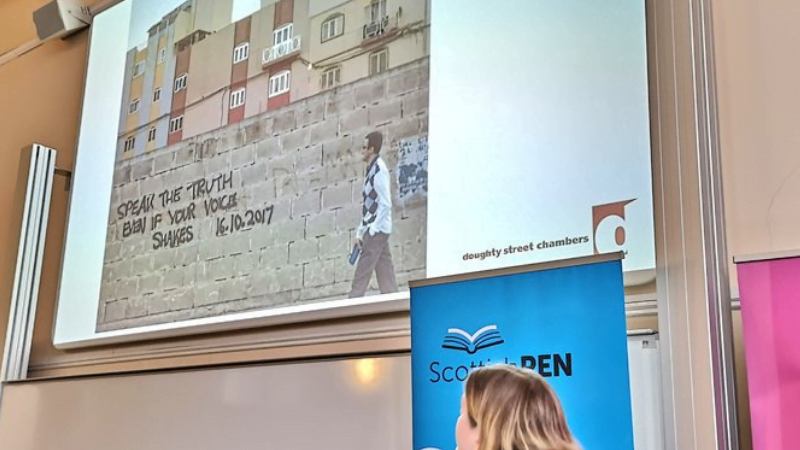Maltese journalists need to know the authorities and the government “can, and will, protect them”, Barrister Caoilfhionn Gallagher of Doughty Street Chambers said at Press Freedom Summit held in Scotland last week where she stressed the need for.an independent public inquiry into Daphne Caruana Galizia’s assassination.
“We are still waiting for an independent and robust inquiry,” Gallagher said. “Daphne deserves justice.”
An independent public inquiry, that would look into whether the State could have prevented her death and ensure measures are in place so another cannot be targeted in the same way, would increase protection for others working in the field, she added.
The Scottish Press Freedom Summit 2019 in Edinburgh brought together journalists, media freedom advocates and media law experts. Topics discussed included measures to defend media freedom and to provide better protection for journalists and other media workers.
Organised by Scottish PEN, the National Union of Journalists, the Saltire Society and the University of Edinburgh Law School, participants heard about the fight for justice for Caruana Galizia from Barrister Caoilfhionn Gallagher of Doughty Street Chambers.
We are still awaiting an independent and robust public inquiry into the murder of #DaphneCaruanaGalizia. Daphne deserves justice and Maltese journalists deserve a demonstration that Malta can and will protect them #PressFreedomScot
— Scottish PEN (@ScottishPEN) July 19, 2019
While discussing ways to increase protection for journalists, Adam Ramsay from openDemocracy said journalists needed support structures around them so they were not left to challenge power alone. “Without that, people can get isolated and lost,” he added.
Elda Brogi, Scientific Coordinator for the Centre for Media Pluralism and Media Freedom, presented “groundbreaking” research on plurality, monopolies and media ownership and how these impact media freedom around the world.
Live from #pressfreedomscot! @eldaelda from @CmpfEui giving the keynote speech now, illustrating the state of media pluralism in Europe as per the findings from the Media Pluralism Monitor. pic.twitter.com/rXriB66p9O
— Paolo Cavaliere (@paolochev) July 19, 2019
She noted that media pluralism was “not on a positive trend in the last few years” and that a “wave of threats against journalists coming from government officials” was of particular concern.
The Media Pluralism Report found a general stagnation and deterioration in market plurality and political independence. Malta was placed at a very high-risk level as “the only EU country that has such extensive political party media ownership”.
Editorial autonomy in Malta’s newsrooms was “not well protected from political or from commercial influences”, according to the report that noted political parties were “key players in the media market.”
Read: Media Pluralism Monitor report notes deterioration in Malta
Reporters Without Borders had published similar findings in the organisation’s country report for Malta. The government disagreed, saying the situation had existed for years and media houses have “all the journalistic freedom to scrutinise and criticise all that they deem appropriate”.
Also speaking at the event were Sarah Clarke from Article 19, Joy Hyvarinen of Index on Censorship, Joanna Connoly from the Media Legal Defence Initiative, and Nik Williams from Scottish PEN. They discussed legal challenges that impact press freedom including murder, imprisonment, threats of violence and censorship.
Williams called the event “a powerful call to action to defend at-risk writers everywhere”.












